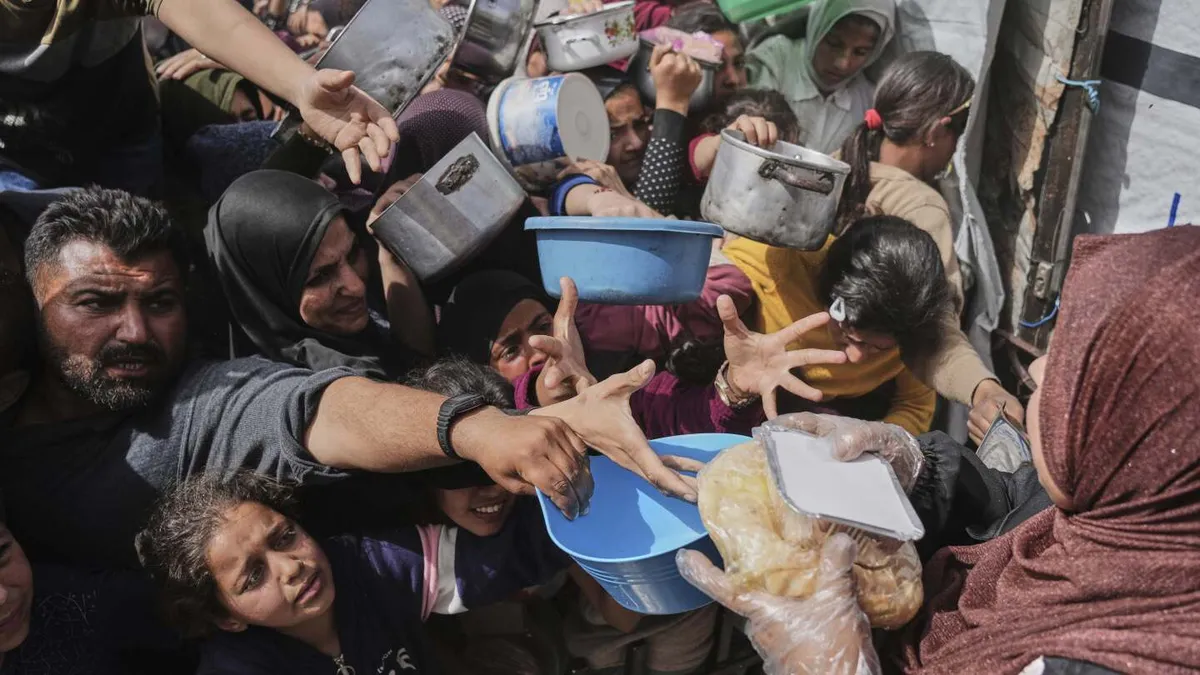
In a significant escalation of its blockade, Israel has restricted all forms of aid from entering Gaza for two months. The Israeli government has declared that it will not allow essential supplies such as food, fuel, water, or medicine into the besieged territory until a comprehensive system is established to control the distribution of these resources. However, officials from the United Nations and various aid organizations claim that the proposals put forth by Israel, which include military involvement in the distribution of vital supplies, are fundamentally flawed and untenable.
According to humanitarian officials, these Israeli proposals would hinder humanitarian objectives, impose restrictions on who can receive aid, and potentially force large numbers of Palestinians to relocate, thereby violating international law. Aid groups argue that Israel should not play a direct role in the distribution of aid once it reaches Gaza. Most have indicated their refusal to participate in any distribution system involving Israeli oversight. Jens Laerke, a spokesperson for the U.N. agency responsible for coordinating aid in Gaza, stated, “Israel has the responsibility to facilitate our work, not weaponize it.”
Although none of Israel’s proposed ideas are finalized, discussions have reached an impasse as aid organizations express their concerns. The Israeli military agency responsible for coordinating aid to Gaza, known as COGAT, has not responded to requests for comments and has directed inquiries to the prime minister’s office, which has also remained silent. Since March, Israel has cut off all imports to Gaza, resulting in what is believed to be the most severe shortage of essential supplies in nearly 19 months of conflict with Hamas.
One of the central components of Israel's proposals is the establishment of five centralized food distribution hubs intended to enhance its oversight of aid. According to documents reviewed by AP, Israel has suggested that all aid should be routed through a single crossing in southern Gaza, with military or private security contractors tasked with delivering supplies to these hubs. This system would be established south of the Netzarim Corridor, which separates northern Gaza from the rest of the territory.
One of the most pressing concerns among aid organizations is that requiring Palestinians to collect aid from a limited number of locations could compel families to move, in violation of international humanitarian law. Aid officials warn that this could lead to permanent displacement and create conditions akin to "de facto internment." Claire Nicolet, an emergency coordinator for Doctors Without Borders, expressed her fears regarding the safety of these distribution hubs, stating, “I am very scared about that.”
The limited number of distribution hubs raises significant safety fears. Large crowds of desperate individuals would need to gather in locations close to Israeli troops, increasing the risk of violent incidents. Historical precedents during the ongoing conflict indicate that Israeli forces have reacted violently to crowds, resulting in tragic outcomes. Aid groups emphasize that international standards would typically recommend establishing approximately 100 distribution sites for a population of over 2 million people in Gaza.
Moreover, aid groups argue that Israel's framework fails to address the multifaceted needs of the population, which extend beyond food distribution to encompass health care and infrastructure repair, particularly for water delivery. Gavin Kelleher, who has worked in Gaza for the Norwegian Refugee Council, noted that “humanitarian aid is more complex than food rations in a box that you pick up once a month.”
In light of the pushback from aid groups against an Israeli military role in aid distribution, the Israeli government is reportedly considering outsourcing certain functions to private security contractors. Aid organizations have voiced their opposition to any armed personnel being involved, citing concerns over potential intimidation and risk to Palestinians. Documents obtained by AP indicate that a U.S.-based security firm, Safe Reach Solutions, has sought partnerships to pilot an aid distribution system around the Netzarim military corridor.
Another alarming aspect of Israel's proposals includes provisions that would allow authorities to determine eligibility for assistance based on unclear criteria. Aid groups have been informed that they will need to re-register with the Israeli government, providing personal information about their staff members. There are concerns that this could lead to restrictions on organizations that criticize Israel or engage in activities deemed to undermine its legitimacy.
As aid organizations strive to maintain unity and resist pressures from Israel, they remain committed to upholding humanitarian principles. Bushra Khalidi, Oxfam’s policy lead for Israel and the occupied Palestinian territory, expressed the gravity of the situation, saying, “For us to work directly with the military in the delivery of aid is terrifying.” The ongoing blockade and the proposed changes to aid distribution systems underscore the urgent need for a humanitarian response that prioritizes the well-being of the 2.1 million people in Gaza.